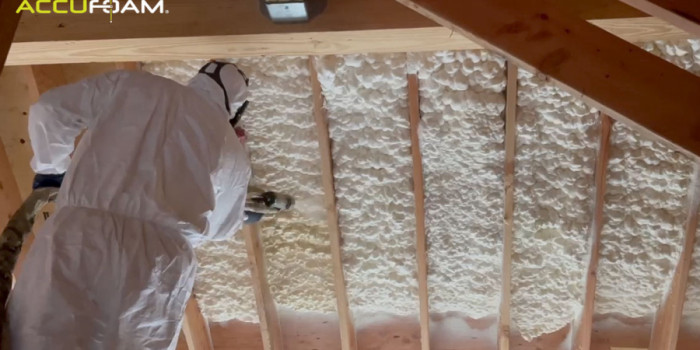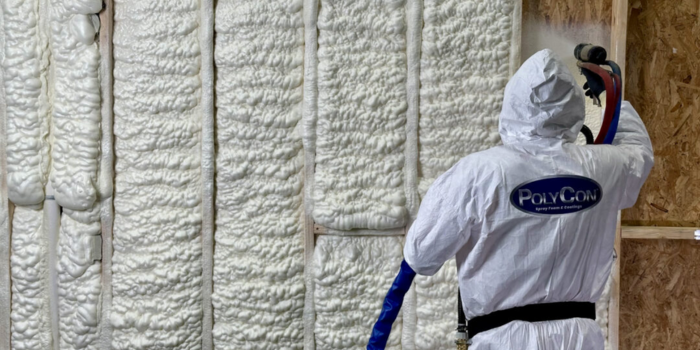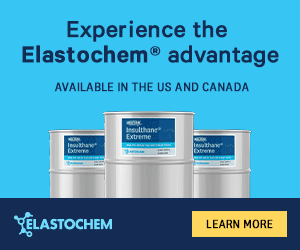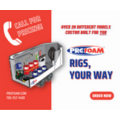From Trash to Treasure


Spray Foam Magazine – Winter 2020 – As participants in the spray foam industry, we understand the incredible ability of the insulation and roofing products we produce and install to reduce the heating and cooling demands of homes and structures of all types. We know our customers benefit from meaningful, long term energy savings, and that the buildings we apply spray foam into produce far less harmful emissions than those with competing insulation products. As installers and manufacturers, we contribute daily to protecting the environment, while simultaneously putting money back into the pockets of our customers.
It’s hard to imagine our industry’s positive environmental story getting any better, but our team at Huntsman Building Solutions believes it can. For six years now, our business’ parent company, Huntsman International, has risen up to do its part in combating plastic waste, helping to keep it out of landfills and ultimately, out of the oceans. As we have found, there are innovative ways to repurpose this harmful plastic waste and we’ve been doing it successfully on a global scale.
Much of this problematic waste originates from the use of single use plastics, with one of the biggest contributors to that being the ever-present plastic water bottle. After use, the majority of these bottles typically end up in landfills, break down into tiny pieces over time and many unfortunately find their way into our oceans.
According to the National Oceanic and Atmospheric Administration (NOAA), it is tough to quantify exactly how much plastic is currently in the oceans; however, scientists believe eight million metric tons, or the equivalent weight of nearly 90 aircraft carriers, enters the seas each year. The harm caused by plastics in the oceans cannot be overstated. Unlike other types of waste, plastic does not decompose. Marine species ingest, and are entangled by, plastic debris, causing severe injuries and death. Plastic pollution also threatens our food safety and quality, as well as our overall health. Coastal tourism is compromised and, ultimately, the waste contributes to climate change.
Recognizing the uniquely ideal position we are in to recycle plastic waste, in 2014 our parent company Huntsman began leveraging a proprietary trans-esterification process which allows us to repurpose distressed PET scrap. PET is a widely produced plastic used to create water bottles, textiles, films for packaging and many other items used industrially and by consumers. While any PET waste would work in the process, the Huntsman team focuses on PET water bottles, transforming them into TEROL® polyester polyols. These polyols are a critical ingredient in the MDI-based spray polyurethane foam products manufactured by Huntsman Building Solutions.

Huntsman Building Solutions transforms 230 million 500ml PET waste water bottles into spray polyurethane foam. On average up to 10,000 recycled plastic bottles go into each home insulated with spray foam.
Huntsman’s TEROL® polyols are notably comprised of up to 60 percent recycled PET waste, enabled through this mass recycling process. The result is that each year, Huntsman Building Solutions transforms 230 million 500ml PET waste water bottles into spray polyurethane foam. On average up to 10,000 recycled plastic bottles go into each home insulated with spray foam. Each home insulated with these SPF solutions achieves up to a 50 percent reduction in energy consumption resulting from heating and cooling activities. The positive impact of this on our customers’ wallets is impressive. However, we are also protecting the Earth by dramatically reducing harmful emissions and it all essentially starts with a solution for trash.
“It requires substantially less energy to produce a product from recycled plastic than from raw materials,” says Doug Brady, vice president of global innovation and product management for Huntsman Building Solutions. “Thus, not only can numerous environmental cases be made for this effort, but a sound business one as well.”
Our facility in Quebec was the epicenter of the recycling effort when it began. The plant,
a legacy Demilec operation which is now part of Huntsman Building Solutions, has produced its own polyols since 2006. Huntsman Building Solutions has now expanded its recycling efforts to the U.S., with main operations in Houston, as well as globally in numerous countries. The formulations are used by TEROL®, whose technology is integrated back into the production of Huntsman Building Solutions spray foam products. Seven of the TEROL® polyols have been certified by Underwriters Laboratories (UL), and in 2014, Huntsman became the first polyester polyol manufacturer to obtain the designation.
“Globally less than 10 percent of plastic is recycled,” adds Brady. “Our team is proud of its ongoing contributions toward keeping plastic waste from harming our treasured oceans. Repurposing this waste into envelope solutions that conserve energy, reduce emissions and save customers money is something our team is thrilled to be part of.”
1 https://oceanservice.noaa.gov/hazards/marinedebris/plastics-in-the-ocean.html
2 Approximately 3,400 recycled plastic bottles are included in one set of Huntsman Building Solutions’ closed-cell spray foam. On average, three sets of closed-cell spray foam are used to install the walls and attic of a 1,600 sq.ft. or 148 sq.m. home.
About the Author: Simon Baker is the global president of Huntsman Building Solutions, the global market leader in high performance spray polyurethane foam and coatings. To learn more about Huntsman Building Solutions’ transformative PET waste to insulation initiative, click here.
*Spray Foam Magazine does not take editorial positions on particular issues; individual contributions to the magazine express the opinions of discrete authors unless explicitly labeled or otherwise stated. The inclusion of a particular piece in the magazine does not mean that individual staff members or editors concur with the editorial positions represented therein.
Disqus website name not provided.










































